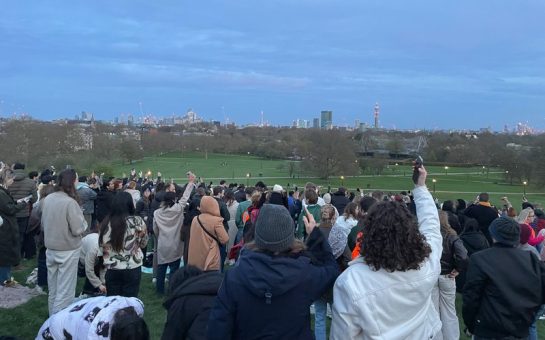Strike action at Brunel University has began after plans to cut hundreds of staff were revealed.
Staff strike action began in February due to the threat of compulsory redundancies and accusations of management incompetence.
Under the current plan, one third of staff are at risk of compulsory redundancies, including 120 academics and 571 professional services staff.
University and College Union members plan to strike on sixteen dates over six weeks, until 11 April.
Bianca De Haan, UCU branch representative, said: “It is shocking, the callousness and cold heartedness with which all of this has been executed.
“Management don’t even pretend to care anymore.”
The dispute arose over university management’s plans to make 423 job cuts by 31 March, 282 of which are compulsory redundancies.
UCU claim the Vice-chancellor was awarded an 8% pay rise to his £320,000 salary in August 2024, while planning to fire hundreds of staff.
They said senior management have failed to acknowledge their mistakes and heed warnings and staff are being punished for management incompetence and lack of reasonable foresight.
The union said: “It is not strategic change, it is a knee-jerk and short-sighted solution.”
This comes after a two-year recruitment spree, that the union claims management was warned against, as the post-pandemic student increase was known to be temporary.
De Haan said: “Over the last couple of years, hundreds of new staff were hired because of unrealistically optimistic ideas about international student numbers, despite warnings that these numbers would not be sustained.”
About 550 staff in targeted redundancy areas like Brunel Business School, Economics and Finance, and Brunel Law School have been made to reapply for their jobs and explain how they meet expectations.
De Haan said: “You feel like a replaceable clock in the machine.”
Stanley Gaines, 64, has worked at Brunel University since 2001 as a social psychologist and senior lecturer.
Gaines said: “It takes a toll. We are exhausted because we have a day job to do on top of these efforts.
“All we can do at this point is keep fighting, that’s my attitude.”
He said a reinvestment in higher education is needed across the UK, in support and money, instead of punishing people who prop the university up in the day-to-day.
UCU suggests solutions like temporarily cutting the Vice-Chancellor’s salary, selling under-utilised assets, broadening the voluntary reduction of hours and expanding voluntary severance options.
They are proposing renegotiating loans on more flexible terms and borrowing more money to weather immediate financial pressures.
Alongside strike action, the union is encouraging members to take part in action short of a strike until 11 August.
This includes not covering for absent colleagues, removing or not sharing material from classes that have been cancelled for striking and not rescheduling cancelled classes.
Prof Andrew Jones, Vice-Chancellor of Brunel University of London, said: “Like many other universities, we’ve had to balance rising costs with a shortfall in income driven by the sector-wide decline in international student enrolments.
“We’re implementing a range of cost-saving measures to ensure we can focus on work that brings the greatest benefit to our students and to society.
“We know that these changes are having an unsettling effect on our community, and we’ll continue to work constructively with our unions to support our colleagues through this difficult time.”
University and College Union have said they are starting with minimal strike action as they do not want to disrupt studies, but will escalate if management refuses to engage.
They stress that students have been side-lined during discussions, despite the impact striking is having on their education.
Theatre and Creative Writing student, Aspen Samuel, 21, said: “40 staff were made redundant last week.
“In the long term, strikes aren’t going to have a lot of impact on the student experience in comparison to losing that many staff and still being expected to keep teaching at capacity.”
Samuel is currently on work placement at the university and has been active on the picket line since their first year.
They said: “Any loyalty and goodwill that has existed, that is built up, has gone across this process.
“People feel incredibly disrespected.”
“The administration are only willing to take accountability for things they think they are responsible for, but they are responsible for a much wider impact.”
“People should direct anger at the people who are above those striking, lets get angry at the administration.”
The striking action has also received support in parliament, from Independent MP and former Shadow Chancellor John McDonnell, who tabled a motion about the massive cuts in staffing.
The motion expressed deep concern at the large scale cuts in staffing being imposed, as this massive programme of cuts threatens to undermine the long term viability of the university.
McDonnell urged the management of the university to engage with the University College Union to give serious consideration to options to address the university’s financial challenges other than redundancies.
This action has been signed by seven MPs, including former Labour Party leader Jeremy Corbyn.
Gaines said: “I cannot thank John McDonell enough for that level of support, it is much needed and much welcome.”
University College Union representatives are planning to meet with Danny Beales, MP for Uxbridge and South Ruislip, to further discuss resolutions.
Their goal is to end compulsory redundancies and work with staff and management to create a long term solution.
Strikers encourage students disrupted by the action to sign their petition and email the Vice-Chancellor to demand a tuition refund for missed lectures and general disruptions.
De Haan said: “Ultimately, it is all about putting pressure on the university.”





Join the discussion